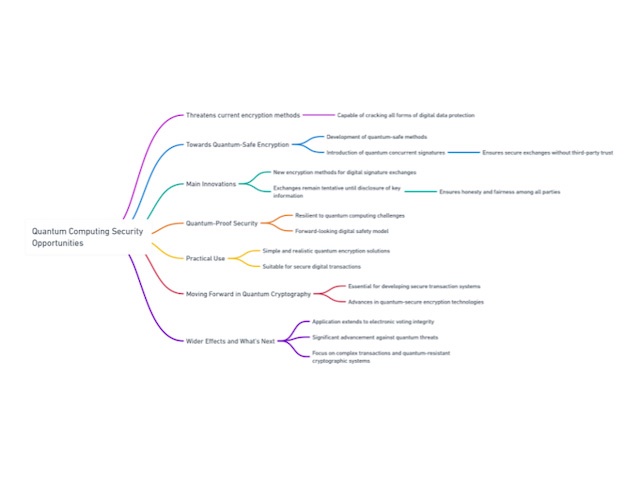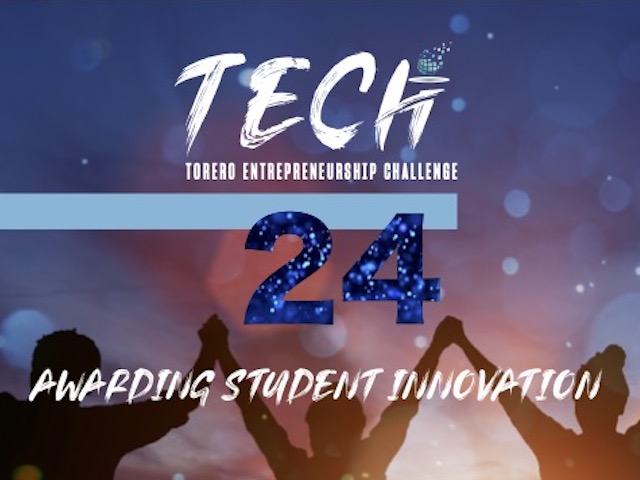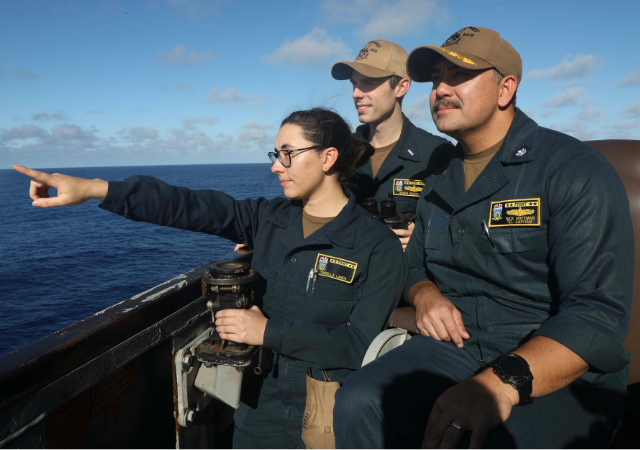COIL Classes Provide Students Credible Collaborative International Experiences
 Students at USD were able to have an international education experience in a few select classes this fall through the Collaborative Online International Learning (COIL) program. Some more are being scheduled for USD's spring semester 2021.
Students at USD were able to have an international education experience in a few select classes this fall through the Collaborative Online International Learning (COIL) program. Some more are being scheduled for USD's spring semester 2021.There is no substitute for the experience one can gain while taking a class. The University of San Diego understands this and is willing to go above and beyond — even internationally — to do so. Just ask senior international business major, Lauren Aja, who won’t soon forget her opportunity in a virtual fall global marketing class.
Taught by USD School of Business Professor of Marketing Maria Kniazeva, PhD, Aja led a project in which she and classmates collaborated with students from Italy’s Florence University of the Arts (FUA) on the topic of managing country of origin effect.
“The objective was to develop marketing recommendations to global companies about the positive or negative perceptions one has regarding product quality depending on the product’s origin,” Aja said.
There were three stages of the project: First, qualitative research on the perceptual meaning on various country of origin labels such as “Made in Italy,” with peer interviews in Italy and the United States; Second, a collaborative comparative analysis of each student’s collected data; and, third, collaborative development of marketing recommendations to global companies on how to manage this effect.
The class was one of a handful affiliated with a program called Collaborative Online International Learning (COIL), or virtual exchange. It’s a new and creative way to internationalize a course while engaging students. Having USD faculty and students link to faculty and students from international partner universities for a short-term project to explore global perspectives.
“I would most definitely take another class like this at USD because it has greatly contributed to my knowledge of international business,” Aja said. “This class furthered my knowledge of how to manage and be part of a multinational team.”
Making the Case
Kniazeva was one of four USD faculty members to give a short presentation during a November virtual USD International Education Week event about their respective COIL classes. Clinical Professor of Management’s Robin McCoy, PhD, Clinical Professor of International Business’ Eileen Daspro and Adjunct Assistant Professor of Architecture’s Adriana Cuellar, MDes, each had their class collaborations with Tecnológico de Monterrey campuses in Mexico.
“Our project consisted of efficiently collaborating with students through academic disciplines, cross-cultural communication, group activities, journals and reflections,” said Binta Balde, a sophomore transfer student in McCoy’s organizational behavior class. “It was designed to help us have better preparation for entering the global workforce.”
Daspro had two COIL classes, one for international comparative management and another an introduction to international business. Lauren Malestic, a senior international business major and French minor in the management class and Thomas Riley, a junior political science and international business double major in the introductory course, shared their thoughts on the experience.
Malestic worked on an international consulting project for an organization named X-Culture. Paired with international members throughout the world — her group had representatives from Canada, Mexico and Estonia — “it was up to us to communicate and complete the project, which was a consulting and strategy project for a ski company in Canada aiming to increase their profits and reach in a new target market,” she said. “We mostly communicated over WhatsApp and divided up our weekly work with one another, working to accommodate everyone’s workloads, time zones, etc.”
She called it “perhaps the most amazing project I’ve ever done in my academic career. It was actually perfect. Although we were working with others in other countries, time zones with different languages and work ethics, each week in class Professor Daspro taught us great lessons about working with other cultures through weekly case studies and class exercises. We’d develop a set of tools each week to complete good work with the others, even with the challenges. I thought it was cool to work with different cultures because each of us really brought something unique to the project.”
Riley’s introduction to international business class experience included a joint business negotiation as one of two students from USD and two from Tec de Monterrey via Zoom. Students worked in pairs to research a case, develop a negotiation strategy and then negotiate with the students from Mexico.
While the project results weren’t perfect, Riley enjoyed his overall experience. “It was great to meet students from Mexico. They were enthusiastic to do the case. During negotiations, they were respectful and professional. I found that students on both sides were more engaged with the project than regular projects with only USD students. I learned a lot from the negotiation and felt it was realistic. It was good practice should I need to participate in a future negotiation. This class reminded me why I love studying international business and why it is my major. The international case was my favorite part of the class.”
The architecture class with Cuellar was a chance for USD and Tec de Monterrey’s Puebla campus students to create teams of four — two USD, two Tec de Monterrey — to do collective research presentations looking at housing issues in Oakland, Calif., and Puebla. There were some challenges due to differences in semester length and other factors, but Cuellar felt students from both institutions mutually gained from the experience.
“I thought (USD) students gained more knowledge and expertise by being exposed to not only international students but as well to more advanced (architecture) students. I think it was interesting too for Puebla students to look at the issues we were dealing with in Oakland. They looked at housing typologies, urban injustices, problems with pollution, water social and economic relationships to housing,” Cuellar explained.
Expanding International Learning Capabilities
Providing something for everyone is great for any class, remote or in-person. Denise Dimon, associate provost for international affairs and economics professor in the USD School of Business, likes the potential COIL has to expand international learning opportunities.
“It is an opportunity to realize a lot of different goals,” Dimon said. “We’ve done a lot of work in the International Center, both receiving international students and sending students out, but we realize not everyone can participate. COIL can offer students who might not be able to travel the chance to do something. We have a lot of international partners, thanks to a lot of the work Kira (Espiritu) has done over the years, and we’re happy to connect faculty with our partners to do different courses.”
COIL’s high-impact learning, student engagement with a cross-cultural experience and without international mobility can combine for a powerful — and COVID-19 proof — academic experience.
“It’s a great example how our faculty can deliver innovative and engaging learning opportunities for our students, either teaching remotely, hybrid or 100 percent in-person. This really shows the dedication of our faculty and it is a strong commitment to offer global perspectives in our courses,” Dimon said.
There are already COIL classes lined up for spring semester 2021. Frank Jacobitz, PhD, department chair and professor in mechanical engineering, will teach his first course, an online offering connected to a professor and class at Tel Aviv University in Israel. Jacobitz, the 2020 Faculty International Impact Award winner, has taught multiple Shiley-Marcos School of Engineering international courses in both Israel and Uganda to name a few.
Dimon received a small grant from the FACE Foundation, the French-American Cultural Exchange in Education and the Arts, and it will enable Business Ethics Professor and Department Chair of Management Tara Ceranic Salinas, PhD, to do a COIL project in a Business and Society class with a business ethics professor’s class at France’s EM Strasbourg Business School. There are plans for more COIL-infused education opportunities in College of Arts and Sciences classes, too.
More international exposure equates to a better, broader educational experience for all Torero students.
“The greatest thing about the work, in my opinion, was being able to connect and engage with students from another country. The cultural richness and diversity of the classroom played a major role in improving my cultural and emotional intelligence,” Balde said. “After working with international students, I came to realize we’re not that different. This experience allowed me to better my communication and interpersonal skills, improve my emotional and cultural skills, build strong and reliable relationships with students from another country and have hands-on experience in a global platform. I would take another class like this without hesitation. The inclusiveness, diversity and richness of the program is a must have for any student that looks forward to working in a global workforce and enhancing their interpersonal skills.”
— Ryan T. Blystone
Contact:
USD News Center
news@sandiego.edu
619-260-4600 x 6652




